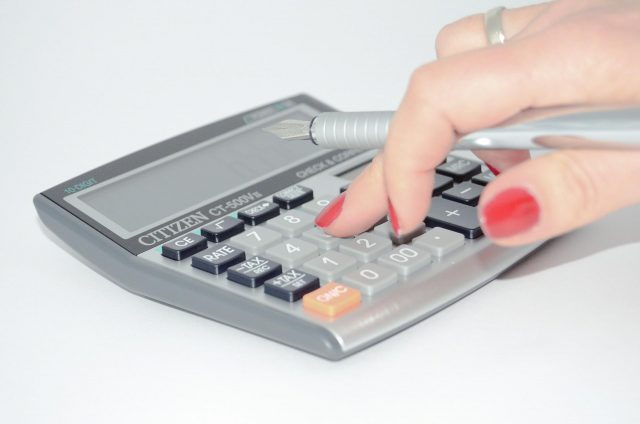So, you started a business, then let it sit for a little bit, hmm? If you didn’t earn income for an entire year, you might be wondering if you have to file your tax return. So, how does filing taxes for small business with no income work?
To file, or not to file? That is the question we all must ask.
Reasons why you might not have income in a fiscal year
Not all businesses without income during a year are on their way to closing up shop. There are a number of reasons why a business might not incur income during a fiscal year.
Here are four common situations that could result in no income:
Situation #1: The go-getter that forms a business but waits to start operating.
Some business owners put in the work to form and structure a business a year or more before operations begin.
Does this sound like you? If you formed your business and filed the paperwork with the state (e.g., limited liability company) but wait to officially start, you may not have income during the year.
Situation #2: The entrepreneur who starts multiple companies … then pauses one.
Your brick-and-mortar business is going great, so you decide to open a new, separate online business. Unfortunately, your marketing efforts fall flat, so it doesn’t do very well.
You lose interest and put a “brief” hiatus on it. You hope to get back to it eventually. Weeks turn into months, and before you know it, you’ve gone a fiscal year without incurring income.
Situation #3: The seasonal business owner dealing with pandemics or natural disasters.
You run a seasonal business. You’re gearing up, ready to open shop for the season, and then Bam!
A natural disaster or pandemic (cough, COVID-19) hits, and you’re forced to stay closed for the season. Which means you won’t be able to open shop until the following fiscal year.
Situation #4: The business that’s at the end of its journey but isn’t officially closed yet.
Some businesses begin the process of closing, but the business owner doesn’t get around to cutting the final cord. So, operations wind down and the business closes … but not officially.
If this sounds like you, you might have a fiscal year (or two or three), where your business has no income.
What about expenses?
Regardless of your situation for not incurring revenue, you fall into one of the following categories:
- No business expenses and no income
- Business expenses but no income
The category you fall into might influence whether you need to file a tax return with the IRS or not, depending on your business structure. So, keep that in mind as we move on…

Filing taxes for small business with no income
Do I have to file business taxes if my business made no money? This is the question you came here to answer.
And we have answers.
But, your responsibilities for filing taxes for small business with no income depends on your company structure.
The different types of company structure include:
- Sole proprietorship
- Partnership
- Corporation (C Corp and S Corp)
- Limited liability company (LLC)
Read on to learn what form each type of structure files and whether you must file it with the IRS in years without income.
Sole proprietorship
Sole proprietorships are businesses owned by one person. Rather than filing a specific tax return, you simply fill out Schedule C, Profit or Loss From Business, and attach it to your personal income tax return, Form 1040.
So, is it necessary to file Schedule C in a year with no income? Maybe.
During a year with no income and no expenses, you generally don’t need to file Schedule C. But, doing so might be a good idea. When it comes to taxes, it’s better to be safe than sorry. So if you plan on not filing a return, be absolutely sure that the IRS won’t think you should have. And, verify that you did not receive any non-income payments related to your business.
If you had no income but had expenses, filing might also be a good idea. You might be wondering, Can I deduct startup costs with no income? If you have no income but did have expenses, you may be eligible to receive a tax refund or credit by filing.
The bottom line is:
- No income, no expenses = Filing Schedule C generally is not necessary
- No income, but expenses = Filing Schedule C can help you receive a refund or credit
Partnership
What is a partnership? Partnerships are businesses that are owned by two or more people. If you own a partnership, you must file Form 1065, U.S. Return of Partnership Income. And, you need to distribute Schedule K-1, Partner’s Share of Income, Deductions, Credits, etc., to partners.
OK, you might be thinking. But do I have to file business taxes if no income is earned?
If you had no income and no expenses, you do not need to file the partnership tax return. Like sole proprietors, verify that you don’t have any hidden income or expenses that you forgot about before skipping your filing responsibility.
If you had no income but had expenses, you must file your information return. That way, the IRS knows about payments that could be treated as deductions or credits.

The bottom line is:
- No income, no expenses = Filing Form 1065 generally is not necessary
- No income, but expenses = Filing Form 1065 is necessary
Corporation
A corporation (“C Corp”) is a business structure that is a separate legal entity from its owners. Corporation owners must file Form 1120, U.S. Corporation Income Tax Return.
Corporations can also decide to form an S corporation. S Corp owners must file Form 1120-S, U.S. Income Tax Return for an S Corporation. Both C and S Corps follow the same guidelines for filing taxes with no income.
If you had no income, you must file the corporation income tax return, regardless of whether you had expenses or not.
The bottom line is:
- No income, no expenses = Filing Form 1120 / 1120-S is necessary
- No income, but expenses = Filing Form 1120 / 1120-S is necessary
Limited liability company
The form an LLC is responsible for filing depends on how the company is taxed. An LLC might be treated as a:
- Sole proprietorship
- Partnership
- Corporation
Follow the filing guidelines for the appropriate business structure your LLC is taxed as.
Filing tax return with no income: Chart
Skimmed to the end, eh? No worries. Use the following chart to help you determine your responsibilities:
| Business Structure | Do You Have to File a Tax Return With No Expenses and No Income? | Do You Have to File a Tax Return With Expenses and No Income? |
| Sole Proprietorship/LLC taxed as a sole proprietorship | Generally, no | Generally, no, but it can help you receive a refund or credit |
| Partnership/LLC taxed as a partnership | Generally, no | Yes |
| Corporation/LLC taxed as a corporation | Yes | Yes |
This is not intended as legal advice; for more information, please click here.








